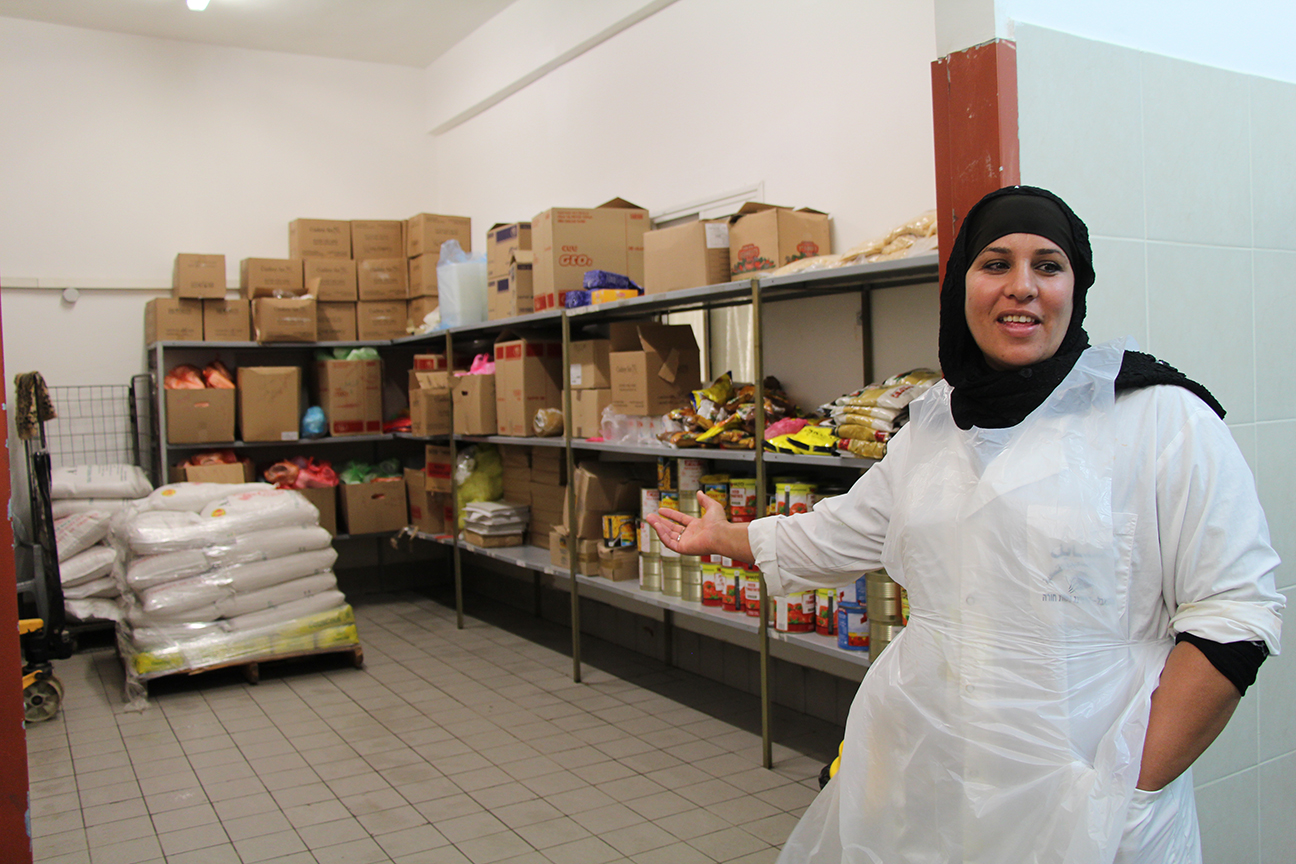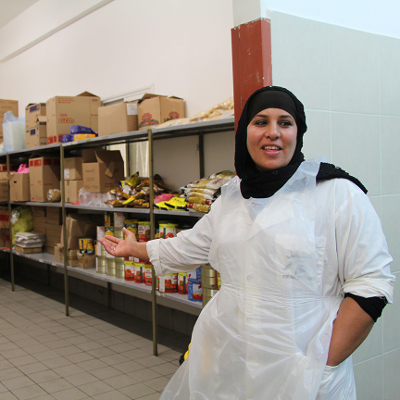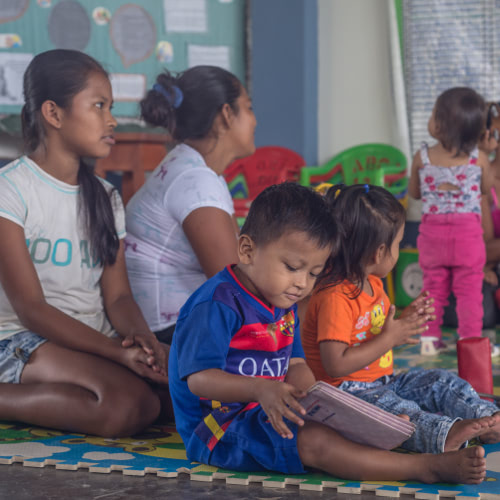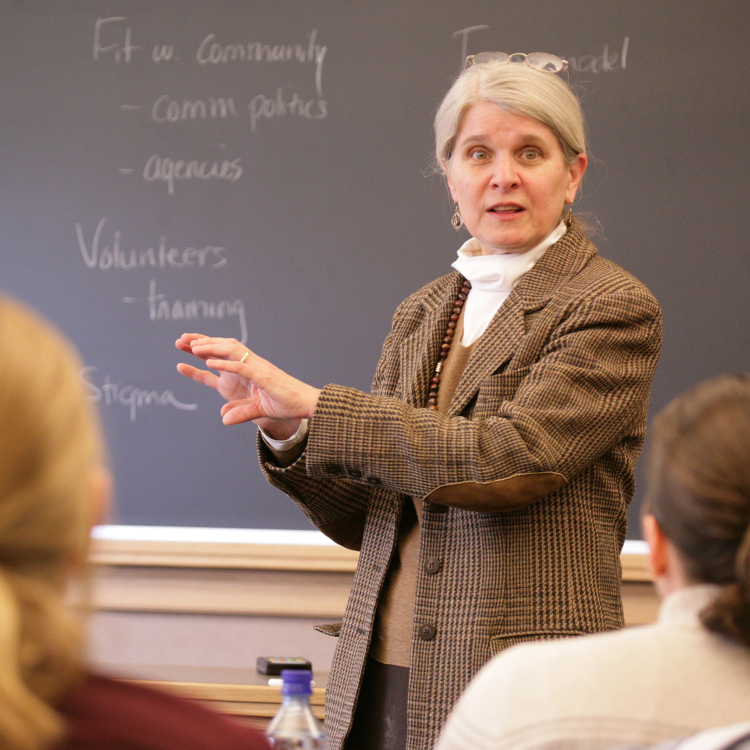School children in the Israeli towns of Hura and Migdal Ha’Emek are eating meals provided by the Al Sanabel catering company, a social enterprise set up with the Foundation’s support. It employs local mothers, trains them in parenting skills, and generates profits which are reinvested in community projects that benefit young children.

An opportunity for public-private collaboration
An opportunity for public-private collaboration
Israel’s Ministry of Education is legally mandated to provide subsidised school meals for economically disadvantaged pupils. It uses private contractors to provide these meals. The Foundation’s partner AJEEC saw an opportunity to bid for the Ministry’s contract using a social enterprise model that would provide employment for local women and benefit local communities.
In partnership with the municipality of Hura, the Al Sanabel catering company was set up. Once the Hura plant was running smoothly, the model was replicated in Migdal Ha’Emek and is currently expanding to new parts of the country.
A Bedouin success story reaches a Jewish town
A Bedouin success story reaches a Jewish town
The Al Sanabel catering company’s plant in Migdal Ha’Emek – a town near Nazareth in Israel, where most of the 25,000-strong population are poor Jewish immigrants from Ethiopia or the Caucasus – began operating in late 2015. It is a rare example in Israel of a project piloted in an Arab Bedouin area being replicated in a majority-Jewish part of the country.
By the time the Migdal Ha’Emek plant opened, the original Al Sanabel catering company in the Bedouin town of Hura was supplying over 7,000 school meals a day and making profits of over half a million euros a year. The profits are reinvested in community projects decided on by an investment committee including employee representatives, with at least half going to projects that benefit young children.
Better parenting through the workplace
Better parenting through the workplace
For the Bernard van Leer Foundation, the Al Sanabel model shows how employment can be used as an entry point to support parenting. The company’s employees are local mothers and grandmothers, often struggling to make ends meet. During school breaks, when there are no meals to supply, the company runs parenting workshops which encourage the women to become “early childhood ambassadors” among their extended families, tribes and communities.
The Al Sanabel company represents a model of social enterprise based on collaboration between business, civil society and government – with the Ministry of Education committing to buy the meals, and the municipal authorities in Hura and Migdal Ha’Emek also lending their support. The model is being brought to new towns in Israel, and could also be expanded into new countries and sectors.



